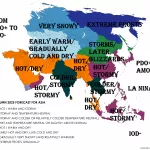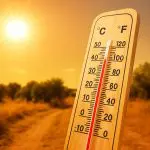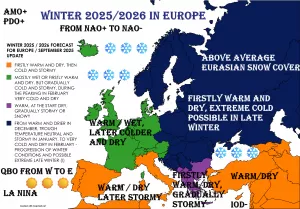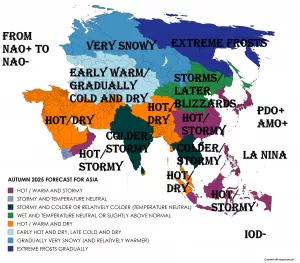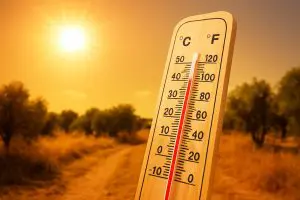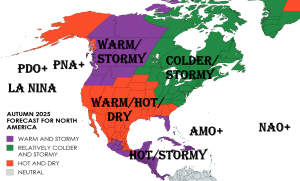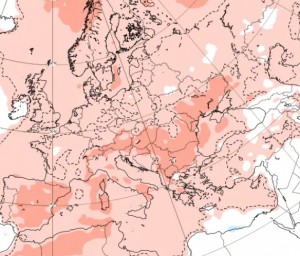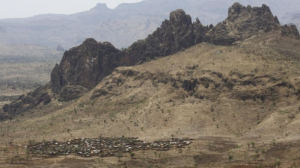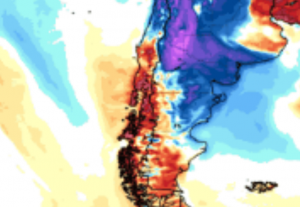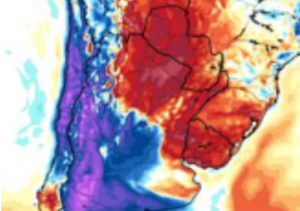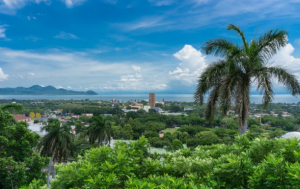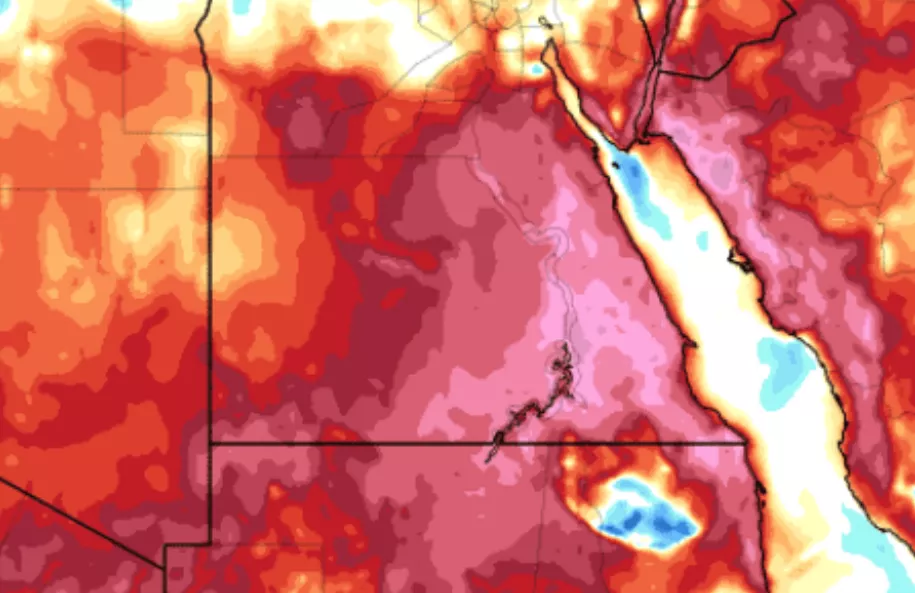
Luxor’s +48.0°C and Aswan’s 48.6°C with a 34.3°C night minimum now set historic benchmarks for August temperatures in Egypt, highlighting the growing vulnerability of desert cities to extreme heat events.
Meteorological Overview
The extreme temperatures were driven by a persistent subtropical high-pressure ridge, combined with hot, dry desert air from the Sahara. Clear skies and calm winds allowed solar radiation to accumulate, while stagnant air in the Nile Valley prevented cooling overnight.
Detailed Observations:
- Aswan: min 34.3°C, max 48.6°C — the hottest day and hottest night ever recorded in August; only 0.1°C below the Egyptian August hottest night.
- Luxor: max 48.0°C — all-time August record.
- Shalatin: max 46.7°C — monthly record for August.
- Sharm el Sheikh: max 46.0°C — all-time record tied.
The combination of daytime highs above 46°C and overnight lows above 34°C created extreme thermal stress, giving residents little relief from the heat even at night.
Impacts on Society and Environment
The heatwave has severely impacted daily life:
- Health: Hospitals report a surge in heat-related illnesses, including heatstroke and dehydration. Vulnerable populations—children, the elderly, and outdoor workers—are particularly at risk.
- Infrastructure: Asphalt roads softened in the sun, and power grids strained under heavy use of air conditioning systems.
- Agriculture: Crops in the Nile Valley and oases faced thermal stress, with irrigation systems running at maximum capacity to prevent crop losses.
Regional Significance
This heatwave is part of a broader trend of record-breaking temperatures across North Africa. Climate models indicate that Saharan heat surges, combined with global warming, increase the frequency of extreme events like those seen in Luxor, Aswan, and Sharm el Sheikh.
Meteorologists warn that continued heat stress may exacerbate health risks and threaten infrastructure across southern Egypt. The Nile Valley’s low-lying terrain amplifies the impact of stagnant, extremely hot air masses.
Outlook
While temperatures are expected to gradually decrease over the coming days, extreme conditions will persist with daytime highs still reaching 45–47°C in Luxor, Aswan, and Shalatin. Residents are urged to stay hydrated, avoid outdoor activity during peak hours, and follow public health guidance.

Detail.


